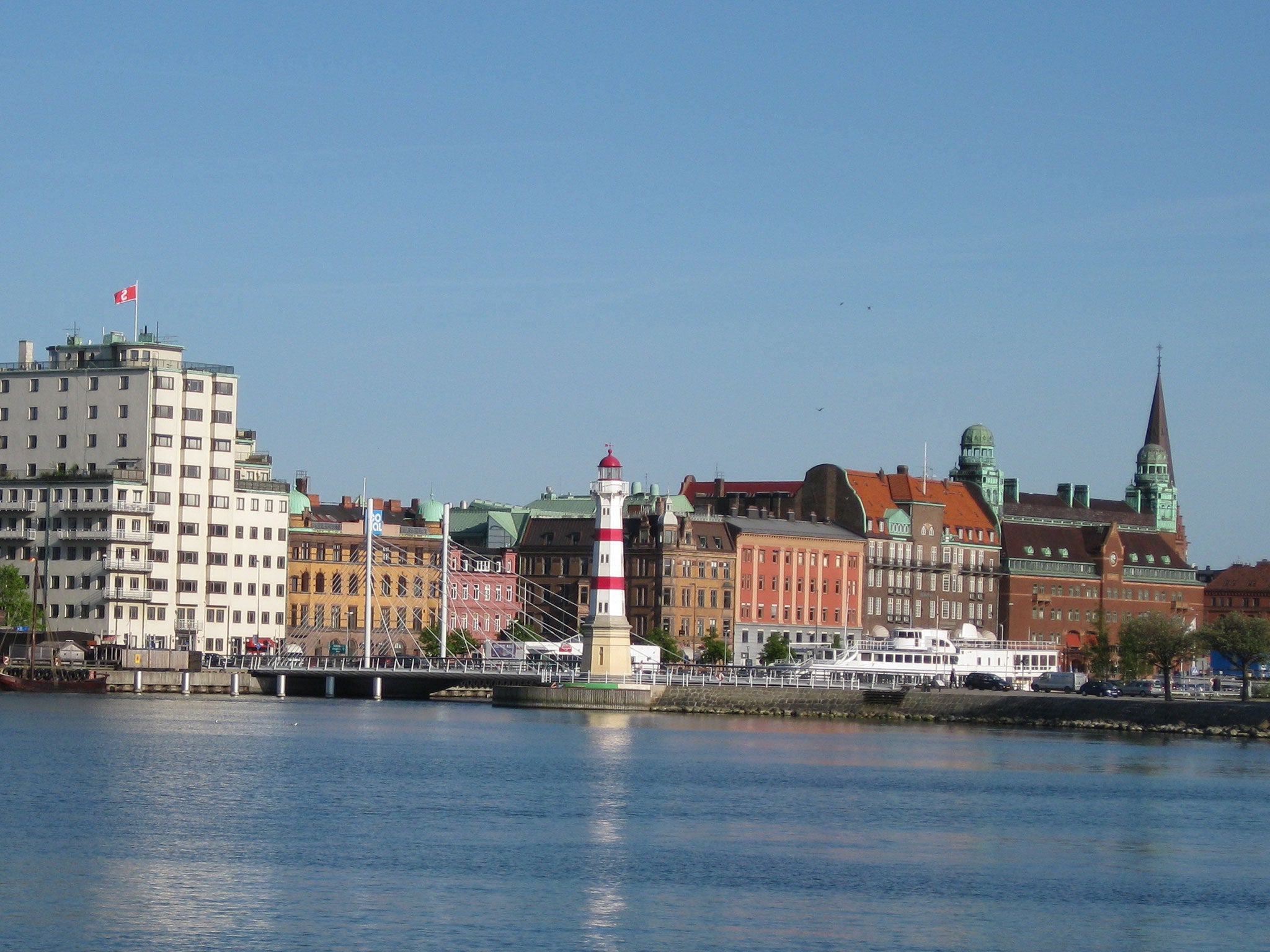Legalising prostitution: Has Sweden's law prosecuting buyers, not sellers worked?
Amnesty says no and has called for the oldest profession to be decriminalised. Richard Orange hears the arguments in Malmo

Less than an hour before she arrives in the lobby of a budget business hotel in the centre of Malmo, Cora has witnessed Sweden’s much-praised sex-purchase law in action.
The 29-year-old Polish woman has been selling sex on and off in the country for a decade, but when the police turned up outside the apartment she was renting on Wednesday, arresting the Swedish man inside and grilling her about how she runs her business, it was something new.
“For us that’s a very big ‘wow’. For us, it’s the first time like that,” she says between gulps of wheat beer. “I feel really sorry. He was a really nice guy and he will get one month to six years [the maximum prison sentence is in fact one year]. Actually, it’s more than that, because everybody will know what he did. This is Sweden.”
In 1999, Sweden became the first country to criminalise the purchase of sex while leaving the selling of it legal, establishing a model which has been adopted by Norway, Iceland, and, more recently, Canada and Northern Ireland. As a result, Cora and her friend Paula can expect few repercussions.
“For us, there’s only one problem, because we lose the apartment and we need to find a new one,” she says. “We didn’t do anything wrong.” That’s a lot better than the situation in Qatar, where she also sometimes works and where she risks a 25-year sentence.

“Many friends of ours are still in jail,” she says with a sigh. “Of course it’s dangerous. But in our work we get so much money there.”
She thinks Sweden’s model is counterproductive. “In Germany it’s legal, in Switzerland and in Greece also, and everybody’s happy, nobody’s got any trouble.”
She strongly supports Amnesty International’s controversial proposal to reject the so-called “Swedish model” and begin advocating decriminalisation across the sex trade.
“I think they’re doing a very good job, it’s really correct what they’re doing and I hope they will change something,” she says of the draft policy, which is up for discussion by the organisation’s international council this weekend.
Some 500 Amnesty delegates from more than 80 countries will vote early next week on whether to advocate the proposal, which calls on all countries to decriminalise the “consensual exchange of sexual services for remuneration”. It has already caused a storm, with Hollywood stars Meryl Streep, Kate Winslet, Emma Thompson and Lena Dunham signing a letter calling on the group to drop it.
The Coalition Against Trafficking in Women says Amnesty’s proposal would see it “advocate the legalisation of pimping, brothel owning and sex buying – the pillars of a $99bn (£64bn) global sex industry”.
Amnesty says the proposed policy drew on “an extensive evidence base”, including UN agencies, sex workers, abolitionist organisations and anti-trafficking groups.
Cora is as global as they come. She and Paula move between Denmark, Norway, Finland, Germany, Qatar, Dubai and Singapore, renting an apartment in each place for up to two weeks and then advertising on the internet. The only exception is Dubai, where they are always hired by the same billionaire for the enjoyment of his guests.

“If you stay too long then you don’t get any customers – you have to be ‘fresh’,” she say as she laughs and high fives Paula. “I’m the translator because I speak eight languages and she drives. It’s a team job.”
Looking at Cora, you’d never guess her line of work. And with her lively, easygoing character, she makes it almost seem fun. But she was the only one to agree to talk out of more than 20 women with adverts on a Swedish sex website. Many were African, Asian or Latin American.
The most desperate women don’t advertise at all, instead haunting the ill-lit streets of a nearby industrial area.
According to Lisa Green, regional co-ordinator for Mika Malmo, which works with local prostitutes who face abuse, or who are victims of trafficking, it’s these people who benefit from the law.
“If I see a victim of human trafficking and the police can do something for her, and save her from her situation because they have surveillance on a sex buyer, then the law is perfect,” she says.
Sweden’s official evaluation of the law, published in 2010, concluded that from 1998 to 2008 street prostitution in the country fell by half, largely as a result of the legislation.
But Ms Green says the experiences of other sex workers she meets often back up Amnesty’s argument that criminalising the purchase of sex harms prostitutes by making their clients stressed and nervous, and driving the trade underground.
“If I see a client who sells sex in the street and who has to make a really quick deal with one of customers, and he does something really bad to her because she didn’t have the time to see that he was high on drugs, then I can see that this is not a good aspect of the sex-purchase law. My opinion can change in an instant because I hear a new story.”
Join our commenting forum
Join thought-provoking conversations, follow other Independent readers and see their replies
Comments